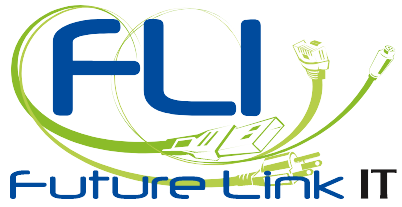 The most critical role of IT in the healthcare industry is to keep your information safe and secure. Unlike some businesses where email management or speed or data backup are essential tools, the processing of personal health data has serious ramifications if the data is breached. Thus, the biggest challenge is to accurately and consistently protect individuals’ private information without crippling the business process.
The most critical role of IT in the healthcare industry is to keep your information safe and secure. Unlike some businesses where email management or speed or data backup are essential tools, the processing of personal health data has serious ramifications if the data is breached. Thus, the biggest challenge is to accurately and consistently protect individuals’ private information without crippling the business process.
With today’s dilemma of identity theft, protecting personal information stored in digital format is critical. Baseline magazine reports that more than 90 percent of data breaches in 2006 were in digital form and some 40 percent of publicly disclosed security breaches were caused by hackers or insider access, specifically targeting sensitive personal information ¹. The FBI reported in 2006 that the average cost per data breach has reached $4.8 billion and since February 2005, 93.8 million personal records have been reported lost or stolen. With these statistics in mind, you see that not only is data protection vital in protecting individual patients, it is also cost-effective for organizations. By complying with HIPAA standards, you can prevent security breaches to maintain trust in your customers as well as avoid financial loss.
According to HIPPA regulations, organizations must have a contingency plan in case of a natural disaster or computer virus attack which maintains established policies and procedures for responding to an emergency or other occurrence (fire, vandalism, system failure, natural disaster) that damages systems containing electronic protected health information.
Three pieces your IT contingency plan is required to have:
- Data backup Plan
Establish and implement procedures to create and maintain retrievable exact copies of electronic protected health information.
- Disaster Recovery Plan
Establish and implement procedures to restore any loss of data.
- Emergency mode operation plan
Establish and implement procedures to enable continuation of critical business processes for protection of the security of electronic protected health information while operating in emergency mode.
Based on these directives, an organization should evaluate their system and then implement a secure backup, archiving and recovery solution to comply with HIPAA standards.
At Future Link IT, we take your security very seriously because we understand the sensitivity of the data you collect. We provide solutions that ensure all electronic protected health information (EPHI) is fully protected when it is backed up and stored and our software encrypts all data and stores the information in secure facilities. In the event of a natural disaster or system failure, the data will be recoverable, thus, assuring that patient medical records will not be lost.
The world of healthcare security and HIPPA regulations can be confusing and sometimes rules seem a bit gray. We have talked more about the rules and you can read more about it in the 2013 blog post.
Additionally, you may be affected by these compliance regulations even if you are not in the healthcare industry. Check out our previous blog of the 12 things you need to know to make sure you are up to snuff.
